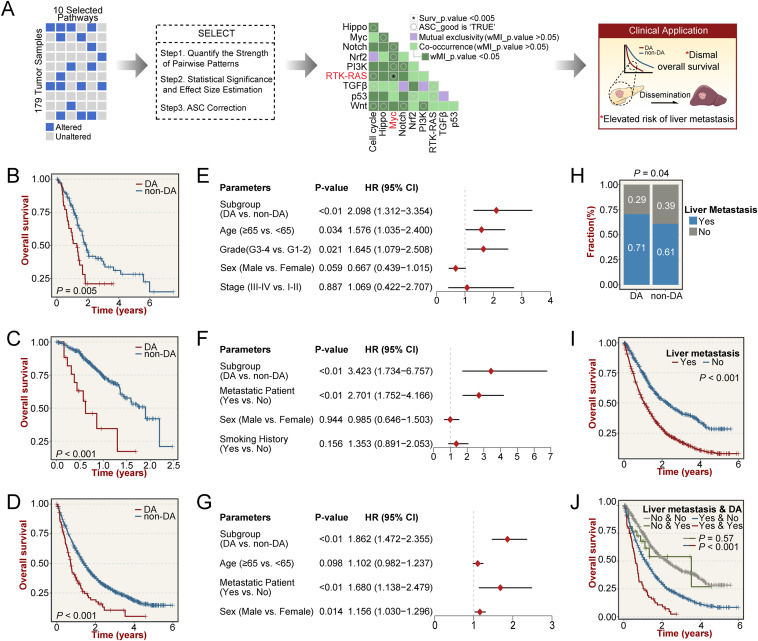
Co-alteration of Myc and RTK-RAS pathways defines a liver-metastatic propensity and immune-cold subgroup of pancreatic adenocarcinoma


Co-altered pathways refer to the phenomenon where multiple biological pathways exhibit aberrant changes simultaneously within the same tumor sample. This phenomenon can facilitate a better understanding of the mechanism and evolution of tumors and serve as a biological marker for diagnosing, classifying, and treating tumors.1 However, the nature of alteration occurrence and the impact on pancreatic adenocarcinoma (PAAD) remain elusive. The SELECT algorithm was originally designed to systematically assess the evolutionary dependencies and their impact between altered genes in cancer for anticipating drug resistance and proposing alternative strategies. Here, to better characterize the etiology of PAAD and develop an improved risk assessment strategy,2 by utilizing SELECT, we identified a co-altered pathway subgroup of PAAD that demonstrated an elevated risk for unfavorable prognosis, a propensity for liver metastasis, and an immunologically cold microenvironment.
